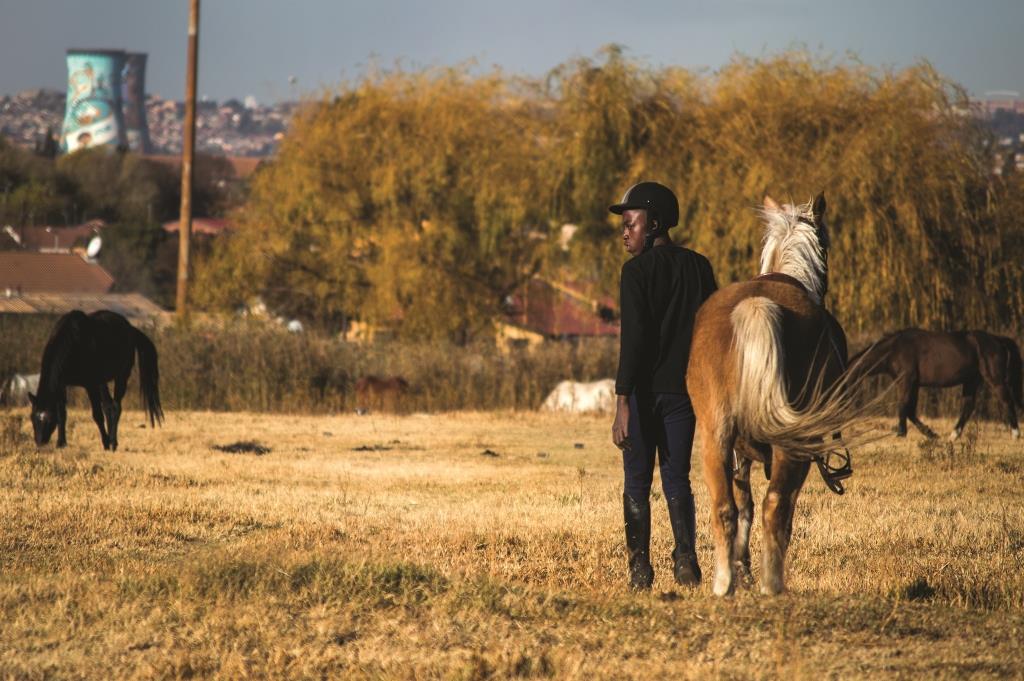Enos Mafokate rose from being a stable hand to become his country’s first black showjumper and an Olympic athlete at Barcelona in 1992. These days he runs a riding school in Soweto, Johannesburg, where he teaches young black people to ride tall in the saddle. It is an illuminating story of doggedness that flickered into life during the harsh days of apartheid.
It all started in the 1960s, when a young and curious Mafokate got his first job in Bryanston, a wealthy suburb in northern Johannesburg, as a stable hand for Jaco Fourie, a showjumper with national colors. He learned the ropes and rose to be a groom. He was entrusted with looking after Fourie’s competition horse.
Mafokate taught himself to ride, but the laws of the day said he couldn’t compete with white riders.
“It all started in December 1960 and I was 19 years old, but I was said to be 17 because I didn’t have an identity book. No black person was allowed to ride a horse to compete in any show and when I asked why, I was told I had to be a groom first, meaning you are a ‘boy’ (servant), only then you could ride,” Mafokate recalls.

In 1992, South Africa, on the cusp of its first democratic elections, was still on the fringes of world sport after many years of being ostracized because of apartheid. Despite this, the country sent what was called a development squad to the Olympic Games in Barcelona. It was not a fully-fledged Olympic team, nor was it expected to march at the opening ceremony.
Nelson Mandela – fresh from prison – was invited to Barcelona; he demanded that the organizers allow the South Africans to march. So Mafokate, in his best riding gear, was at the front of the procession and proud.
In 2007, Mafokate realized his dream of opening his own riding stable in Soweto. At the Soweto Equestrian Foundation, Mafokate trains more than 60 children with 20 horses and ponies. The club also trains both able and disabled children.
“It provides therapy for both mentally and physically unstable children and that is working magic,” says Mafokate.
It has been far from a smooth ride. Mafokate, who sometimes uses his pension to keep the club going, feels the parents could pay more.
“They pay a R100 (around $7) membership fee and don’t pay for anything else like transport or uniform for their children for competitions.”
To make matters worse, one morning in October, as Mafokate was feeding, he was shocked to find his four-year-old pony mutilated and dead.
“This is the year where I think I have gone back to 1988 when I started. I look and think I should be better than I was years ago when I got R700 ($50) from the SPCA to buy my first horse, so 2015 has been a very, very difficult year for the club,” he says.
“The jealous will say it is Enos’ riding school. It’s not; truly speaking it is for the community.”
Through it all, the club has battled on. It was the South African champions twice, Gauteng champions three years in a row and two members from the club represented South Africa at the World Equestrian Games in France in 2014.
It is unlikely that Enos’ son will take over the reins at the riding club. Although they are father and son, they are as different as chalk and cheese.

His son, Arthur Mafokate is a sharp dressed king of kwaito music, more at home on stage than in the saddle.
